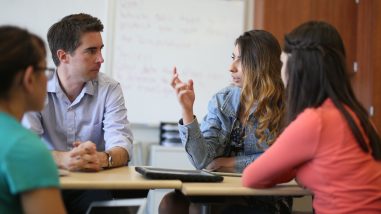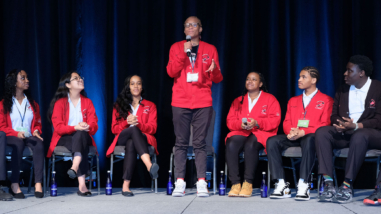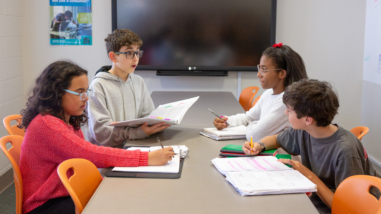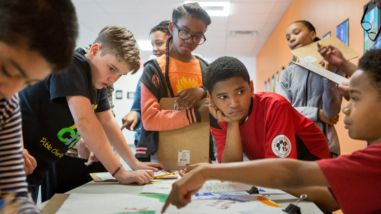A student’s journey: ‘Self-regulation’ paved the way to success
Yvonne is just one student, but her story is a powerful reminder that self-regulation is important for success in college as well as after graduation from high school or college. For our kids to succeed – whether at work, college or as a citizen more broadly – they need to know how to adapt. That means learning how to learn and believing that they can do it, just as Yvonne has.
With the Hewlett Foundation’s support, the California Performance Assessment Coalition is bringing together schools like Envision to develop and test performance assessments like Yvonne’s portfolio defense. The hope is that these assessments will serve as a pathway for students to demonstrate their readiness for college.
Performance assessments can take a variety of forms, but they typically involve students producing a work product that reflects a real-world challenge requiring higher order thinking, evaluation, synthesis, and deductive and inductive reasoning, like proposing a way to solve climate change or developing a method for improving access to potable water in developing counties. Performance assessments, unlike standardized tests, offer a more holistic approach to schooling which requires students to demonstrate understanding. This type of competency-based graduation requirement reinforces California’s alignment of K-12 academic standards, college and career.




